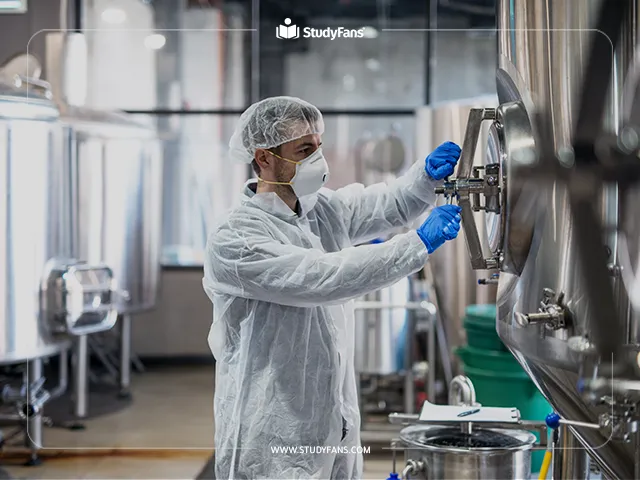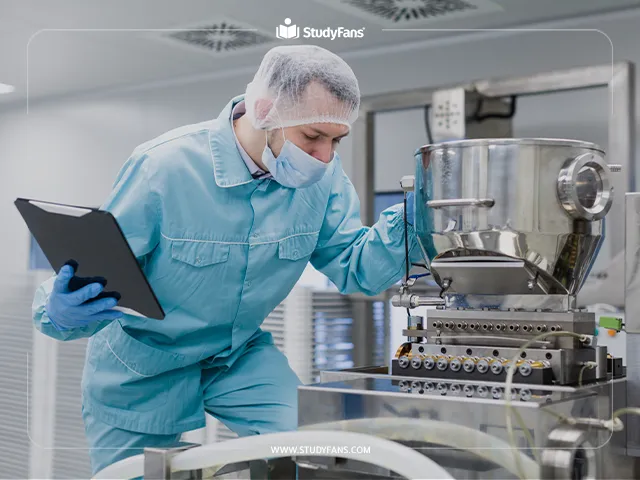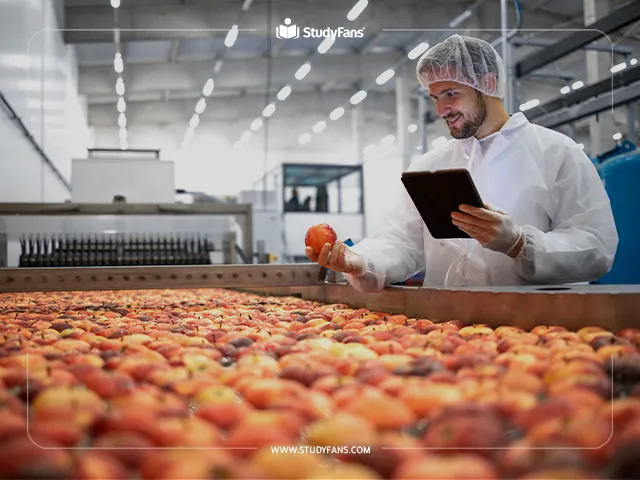Studying food engineering in Turkey qualifies students to carry out and supervise food production ,packaging, and transportation processes to meet the rules and ensure hygiene requirements. Food engineers also conduct various studies in collaboration with other fields such as chemistry, physics, and microbiology.
What is Food Engineering in Turkey?
Food engineering combines food science and technology, and engineering in a unified framework. In this specialization, the students will obtain proper training to manage all foodstuffs' production, packaging, and transportation processes.
History of Food Engineering in Turkey
The Higher Agricultural Institute was established ten years after the foundation of the Republic of Turkey with four colleges. One of them was called the College of Agricultural Arts, as the agricultural arts reflected the development of food technology in Turkey at that time.
This institute conducted early food scientific research in Turkey; One of the first professors in this institute was Sit Tahsin Tekeli, who obtained his Ph.D. abroad in 1928 and worked at the Faculty of Agricultural Arts.
In 1948, this institute integrated into Ankara University under the Faculty of Agriculture. Thus, the College of Agricultural Arts transformed into the Department of Agricultural Technology. After that, many Turkish universities began to open food engineering departments until they reached 64 universities.

What is the Aim of Food Engineering Specialization in Turkey?
This specialization primarily aims to graduate students who can ensure safe and proper food delivery to the consumer and evaluate food production, processing, and packaging adherence to human health standards.
In addition to the above, it tries to fill the shortage of specialized cadres in the field of food and provide the students with the required knowledge about a healthy lifestyle allowing them to maintain good standards in the food sector.
Advantages of Food Engineering Study in Turkey
Food engineering graduates obtain great benefits that motivate new students to join this specialization, such as:
Wide areas of work.
High average salary.
They can secure full-time government jobs.
Food industry is constantly evolving and growing.
Read more about: Advantage and disadvantage of Studying in Turkey
Tasks of Food Engineers in Turkey
As we mentioned above, the work of food engineers includes producing, packaging, and transporting food in a healthy and safe environment in the company.
However, they also conduct different studies in collaboration with colleagues in chemistry, physics, and microbiology fields.
They also hold responsibility for ensuring food product quality and proper and hygienic delivery to the required places.
Inspection and quality control of all stages of product production, from raw materials to presentation to the consumer.
Inspect and ensure food production processes in a hygienic environment.
Ensure the storage of products in the appropriate places.
Producing and developing the best products at the lowest cost.
Overcome the raised problems during production and ensure continuous operations without interruption.
Researching the multi-purpose use of food waste.
Examine and document product samples.
Conducting studies to increase productivity and profitability by reducing business costs.
Duration of Food Engineering Study in Turkey
The duration of the undergraduate program in food engineering is four years. An additional language preparatory year would be added to the total duration of the study if the student did not manage to submit the language test certificate for some universities.
During the program, the students will study:
In the first year: Biology and Organic Chemistry.
In the second year: Occupational Health and Safety.
In the third year: Food Safety.
In the fourth year: Principles of Nutrition.
Medium of Instruction for Food Engineering Programs in Turkey
The food engineering programs are available in English and Turkish medium of instruction. The offered programs in Turkish private universities are primarily available in English.

Courses of Food Engineering Program in Turkey
During the study of food engineering in Turkey, students will attend scientific training on food resource management, food analysis, and food chemical composition and will study the following courses:
Ataturk's Principles and History of the Turkish Revolution.
General Chemistry.
Computer.
Chemicals.
Maths.
Physics.
Technical English.
Introduction to Food Engineering.
Kinetics of Reaction.
Food Chemistry.
Food Analysis.
Analytical Chemistry.
Organic Chemistry.
Molecular Biology.
Food Biochemistry.
Statistical Methods in Engineering Studies.
Food Safety.
Nutrition Principles.
Vegetable Oil Techniques.
Biology.
Differential Equations.
Thermodynamics.
Food Microbiology.
Enzyme Science.
Food Toxicology.
Milk Physic Chemistry.
Fermentation Technology.
Meat Technology and Products.
Food Industry.
Food safety and microbiology are among the basic core courses in this program, providing the students with the required technical knowledge in food engineering. These courses are based on memorization, making the exams somewhat challenging.
These are the standard courses in the food engineering program in Turkish universities. However, they may also vary from one university to another.
After completing these courses, students will be awarded a 'Bachelor's Degree in Food Engineering' with the title of 'Food Engineer.'
Know about: Details of Studying Mechatronics Engineering in Turkey
Job Opportunities for Food Engineering Graduates
Graduates of the food engineering specialization can work as:
Food engineers.
Quality control engineers.
Research and development staff.
Production engineers.
Food production specialists.
They can also regulate public health.
Food engineering graduates in Turkey can work in private and public sectors. Most food engineering graduates prefer to work in the private sector in production, research and development, sales, marketing, and quality control departments.
The graduates can pursue academic work at the university.
They also can work in the following institutions and ministries:
Food production companies.
Food supply companies.
Ministry of Health.
Ministry of Agriculture and Rural Affairs.
Ministry of Customs - Ministry of Industry and Trade.
Directorate of Food, Agriculture, and Livestock.
Municipalities.

Salaries of Food Engineering Graduates in Turkey
The increased attention paid to food and consumer goods in Turkey has led to an increase in the salaries of food engineers. salaries are between 20,000 to 30,000₺.
According to Turkish standards, these salaries may vary based on experience, capability to speak a foreign language, certificate, education, and skills.
Most Famous Universities to Study Food Engineering in Turkey
Food engineering departments are available in the following Turkish universities:
Middle East University
Istanbul Technical University
Yeditepe University
Yıldız Technical University
Hacettepe University
Istanbul Aydin University
Izmir Institute of Technology
Istanbul Sabahattin Zaim University
Ankara University
Ege University
Bursa Uludağ University
Akdeniz University
Bursa Technical University
Expenses of Food Engineering Study in Turkey
The tuition fees for studying food engineering in Turkey vary according to the university's credits and the medium of instruction. For example:
Yeditepe University (English medium of instruction): $8977,50 per year.
Izmir Economic University (English medium of instruction): $8000.
Istanbul Sabahattin Zaim University (30% of the study is in English): 45,000₺.
Istanbul Sabahattin Zaim University (Turkish medium of instruction): 29,810₺.
Istanbul Aydin University (Turkish medium of instruction): $4000.
Istanbul Aydin University Masters with Turkish medium of instruction 8000$.
Istanbul Aydin University PhD with Turkish medium of instruction 10,000$.
Learn about: Top 10 Engineering Faculties in Turkey
Document and Admission Requirements to Study Food Engineering Study in Turkey
The student should submit the following documents for admission to food engineering in Turkey:
A copy of the passport.
Transcript of secondary school and certificates
English language proficiency certificate (if available).
General Certificate of Secondary Education (GCSE) (Tawjihi - Baccalaureate)
Personal Photograph
Read also: Application Requirements to Study in Turkey in 2023
If you wanted to know more or have any questions, we are here to help you and you can always contact us:
Phone: 00905437394024
Or via WhatsApp through this link.





